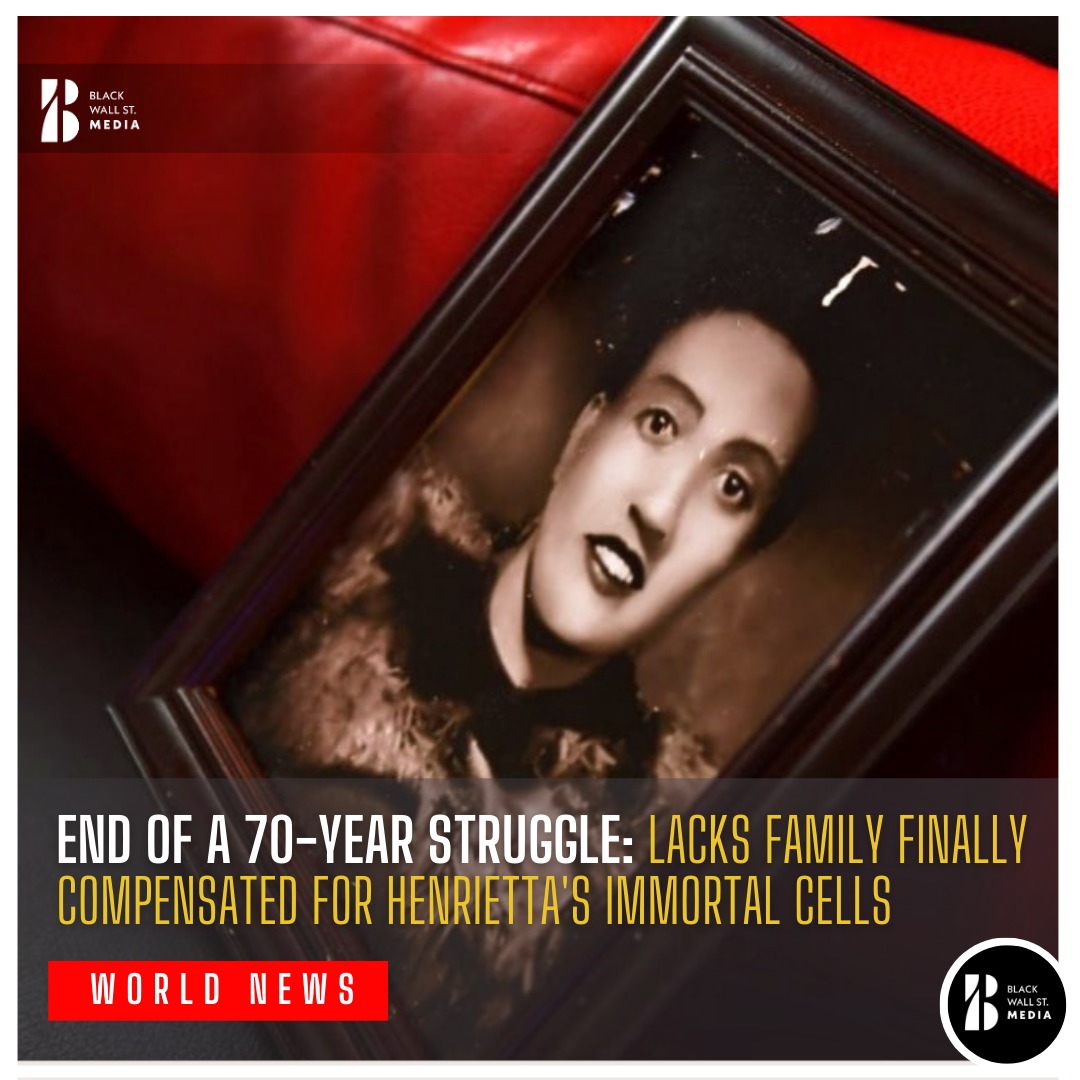Social Justice
End of a 70-year Struggle: Lacks Family Finally Compensated for Henrietta's Immortal Cells
“"In the fight for justice, the path is long and arduous, but even the smallest victories serve as stepping stones to a future where equity is more than just a concept, but a universal healthcare standard."”
Black Wall St. MediaContributor

The saga of Henrietta Lacks, a Black woman whose cells have profoundly shaped the course of modern medicine, has finally reached a milestone.
Over 70 years after doctors at Johns Hopkins Hospital harvested her cervical cells without her consent, a lawyer representing her descendants announced a settlement with Thermo Fisher Scientific Inc., a biotechnology company accused of making billions from a system tainted with racial bias.
Henrietta Lacks’ legacy began with a grim turn of events. Diagnosed with cervical cancer, her cells were taken before she succumbed to the disease.
Unbeknownst to her, the tissue extracted from her tumor would revolutionize the medical field. Lacks’ cells were the first to be successfully cloned, creating an infinite line of reproductions, now globally recognized as HeLa cells.
These cells have underpinned countless scientific and medical advancements, from the development of the polio vaccine and genetic mapping to the creation of COVID-19 vaccines.
Despite this enormous contribution, the Lacks family saw no compensation. Medical and scientific practices at the time of Lacks’ treatment in 1951 did not require patient consent, and the origin of the HeLa cell line wasn’t widely known.
However, the family’s lawyers argued that Thermo Fisher Scientific Inc., based in Waltham, Massachusetts, continued to profit from these cells well after their provenance became publicly recognized.
The settlement is a result of all-day negotiations that took place behind the doors of a federal courthouse in Baltimore, with several members of the Lacks family participating. Attorney Ben Crump, representing the Lacks family, announced the confidential settlement late Monday.
“The parties are pleased that they were able to find a way to resolve this matter outside of Court and will have no further comment about the settlement,” said Crump.
The scientific significance of HeLa cells is due to their unique properties. Unlike most cell samples, which expire shortly after extraction, Lacks’ cells survived and thrived.
This ability to be cultivated indefinitely led to the creation of the first immortalized human cell line, enabling scientists worldwide to reproduce studies using identical cells.
The story of Henrietta Lacks and the impact on her family was popularized in Rebecca Skloot’s bestselling book “The Immortal Life of Henrietta Lacks.”
This work revealed the journey of a poor tobacco farmer from southern Virginia and mother of five, whose cells would unexpectedly immortalize her name.
Her story was further popularized when Oprah Winfrey portrayed her daughter in an HBO movie based on the book.
Lacks’ descendants contend that their grandmother’s exploitation highlights an ongoing, broader issue: racism in the American medical system.
“The exploitation of Henrietta Lacks represents the unfortunately common struggle experienced by Black people throughout history,” the complaint reads.
“Too often, the history of medical experimentation in the United States has been the history of medical racism.”
Thermo Fisher requested a dismissal of the case, arguing that it was filed after the statute of limitations had expired. However, the family’s lawyers contended that the company’s continuous profit from the cells should negate this limitation.
The implications of this case extend beyond just Lacks’ family. Last week, U.S. senators Chris Van Hollen and Ben Cardin, both Maryland Democrats, proposed a bill to posthumously award Lacks the Congressional Gold Medal, emphasizing the overdue recognition for her invaluable contribution to medicine. Van Hollen stated, “Henrietta Lacks changed the course of modern medicine. It is long past time that we recognize her life-saving contributions to the world.”
While the settlement marks a significant development in the Lacks family’s pursuit of justice, it also serves as a stark reminder of the persisting ethical and racial disparities in the medical field.
The lessons learned from Henrietta Lacks’ life and legacy will continue to shape the conversation around medical ethics, patient consent, and racial equity in healthcare for years to come.

















